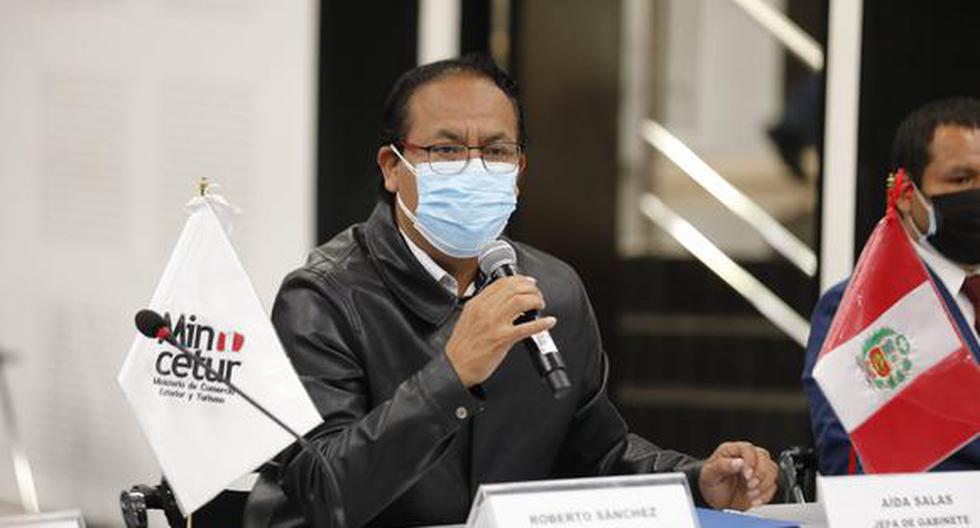The Peruvian government is preparing a bill that proposes chemical castration for rapists of minors, adolescents and women, as announced by President Pedro Castillo.
Source: CNN in Spanish
During his presentation, Castillo mentioned the case of a 3-year-old girl who has caused great outrage in the country. The man, accused of kidnapping and raping her, received nine months of preventive detention by the Judiciary.
What is chemical castration and what does the Executive’s proposal consist of?
Chemical castration is the use of drugs to reduce libido or sexual activity and is a legal form of punishment in countries such as South Korea, Poland, the Czech Republic and in some states of the United States, but it is considered a penalty ” cruel and inhumane” by Amnesty International.
Although the president did not give details of the bill that the Executive is preparing, he did say that the proposal will be formalized in the coming days and that he awaits the support of the Congress of the Republic where it will be sent.
“Do not turn your back on a popular clamor,” added Castillo.
The Minister of Justice, Félix Chero, did give more information about the proposal that the government would formulate. He said that chemical castration will be proposed as a measure accompanied by prevention in education and mental health.
He added that it would be a shame if chemical castration would not be applied in those cases where the aggressor receives a life sentence.
Criminal lawyer Carlos Caro said that this proposal has been debated in Peru since the 1990s and that it has not been approved due to two types of problems. “The first problem has to do with the constitutional issue. Corporal punishment in Peru is prohibited and chemical castration would be equivalent to a corporal punishment that would violate the dignity of the person”.
“The second problem, which I think is the most important, has to do with the effectiveness of the measure, which is in question in the medical field, in the sense of knowing if it is possible to effectively reduce sexual libido. or the incidence of sexual crimes when this type of substance is applied”.
Apart from these two points, Caro warns that “the problem is that rape does not have sexual libido as its starting point, but rather criminal thought and, according to Peruvian law and that of all countries, a sexual crime is not only the introduction of a part of the body in a minor but also consists of the introduction of objects. So whoever does not have the capacity due to impotence due to this substance to be able to commit a sexual crime, to have an erection, does not mean that he cannot use other means”.
What are the penalties for rapists in Peru?
Currently, article 173 of the Penal Code establishes life imprisonment for those sentenced for rape of minors under 14 years of age. “The sentence could be reviewed after 35 years in prison,” explained Caro.
reactions
The congresswoman from Peru Libre and president of the Congressional Women’s Commission, Elizabeth Medina, supported the Executive Branch’s proposal and said she was in favor of implementing chemical castration for rapists of minors.
While Héctor Ventura, congressman from the opposition Fuerza Popular party, said that chemical castration “would not be the solution since these unfortunate events will continue to occur, for this we must prevent.”
What are the steps to approve the government proposal?
The bill must be approved by the Council of Ministers before it can be sent to Congress. In the Legislative Power, it must follow a procedure before the corresponding commissions to later be debated and voted by the plenary. The process could take several months.
Background
In 2018, the Peruvian Congress discussed the modification of the Penal Code so that those sentenced for rape of minors under 14 years of age are subjected to chemical castration, but, finally, the initiative was not included in the regulations that were approved at that time referring to prevention. and punishment of the crimes of rape.
At the time, former congressman and presidential candidate Yonhy Lescano, who voted in favor of the proposal, said it would help reduce the rate of sexual crimes.
On the contrary, Mauricio Mulder, a parliamentarian from the APRA party, pointed out that an issue of this type should be addressed through a national debate and wondered what use castration would serve if the person was sentenced to life imprisonment.
Duberlí Rodriguez, who was the president of the Judiciary at that time, said: “The aggressive attitude of a person is not born from the testicles organically speaking; it is born from what is in his head, in his thoughts, therefore it would not be the most appropriate formula for me to combat these sexual assaults”.
Lawyer Caro points out that in the past all initiatives of this type have been shelved.
“The issue that the consent of the convicted person would be required because a substance, like the vaccine, is a limitation. For me this is penal and legislative populism. We have a government that is quite questioned, very weak and I think that putting this in the public discussion is simply a distraction maneuver”.





